The Water Grab
Saving the McCloud River from Bottled Water Disaster

By Curtis Knight, CalTrout Executive Director
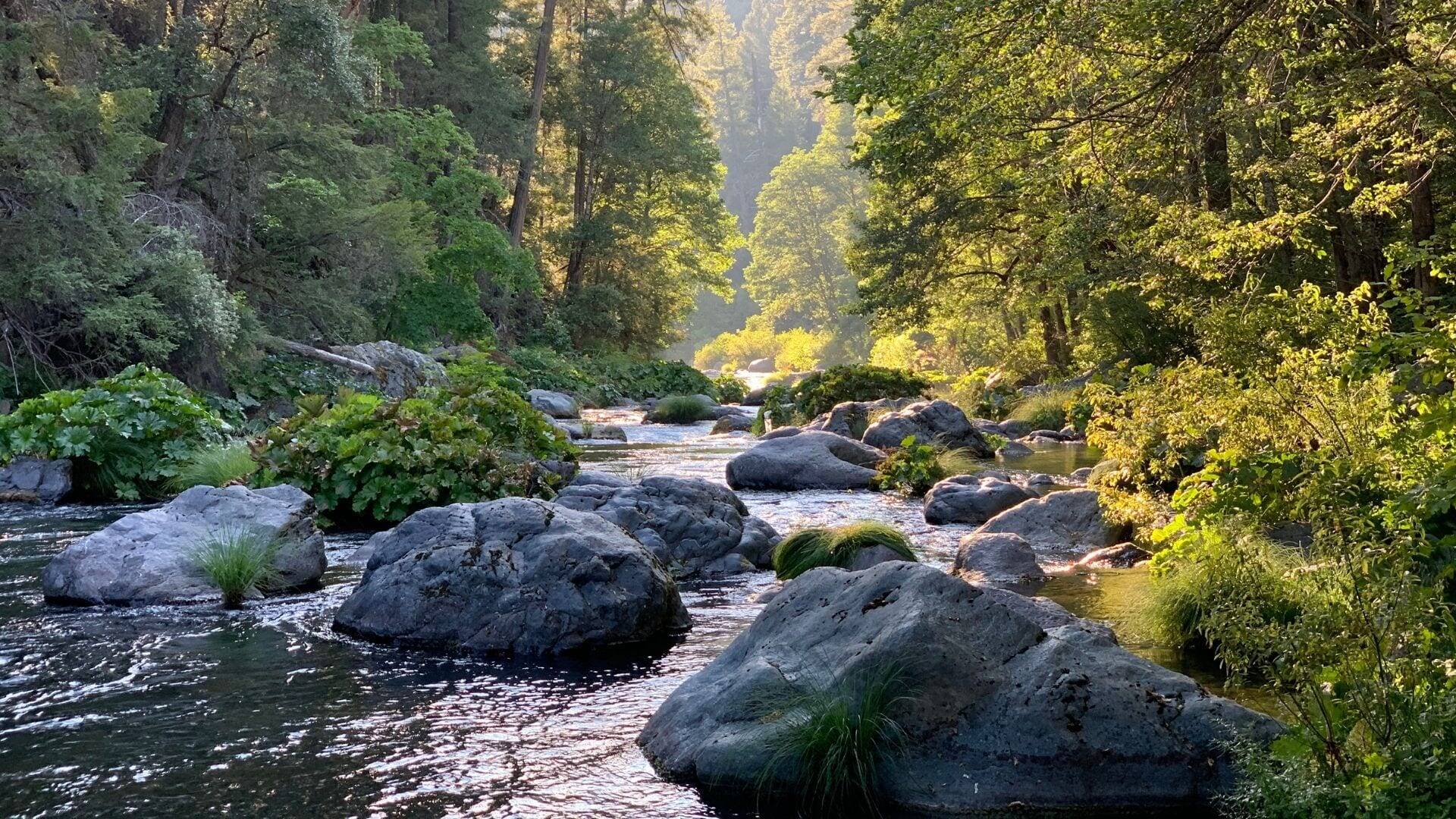
“We have a problem in McCloud.”
That was the message in the Fall of 2003 from our friends at the McCloud Watershed Council concerned about a back room deal by the Nestlé Corporation to establish one of the world’s largest water bottling plants in the town of McCloud. We would learn the deal was especially egregious and would threaten the springs that feed the majestic McCloud River.
A Bad Deal
McCloud Community Services District had signed a 100-year contract with Nestlé to utilize 1,600 acre feet— that's 520 million gallons—per year. The contract was signed with little public input and contained no provisions for inflation, changes in the value of the resource, or changes in the hydrological conditions due to climate change.
The deal would have allowed Nestlé to draw water from three different sources of the headwaters of the McCloud River.
First, the contractual 1,600 acre-feet annually would come from springs that feed Squaw Valley Creek, the McCloud's primary feeder creek and important spawning habitat for rainbow trout.
A second source specified in the contract allowed Nestlé to pump unlimited amounts of groundwater from anywhere within city limits.
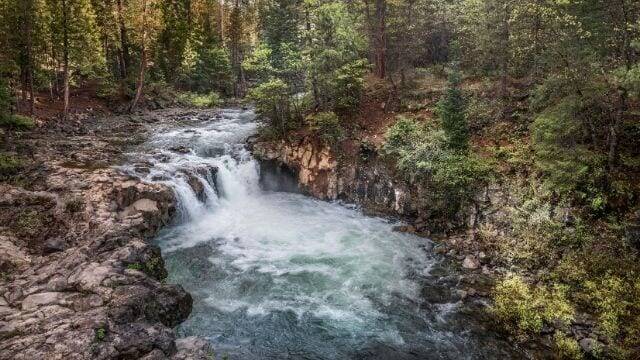
The third source of water would have come directly from the Upper McCloud River. Nestlé bought the old mill site in the heart of McCloud to build a one million square foot water bottling facility—the largest in the world at the time, if built. With this purchase came an appropriative right for the Upper McCloud River, adding a direct impact to the flows of the McCloud River.
And what did the town get for all this water? The contract stipulated a price of $26 per acre-foot ($0.0008 per gallon) for the McCloud’s cold, clean spring water. Compare this to $2,000+ per acre-foot paid by cities like Los Angeles and other urban areas for municipal water, and the message was clear: this was a bad deal all around for McCloud's fish, water, and people.
 Andrew Bassak, CalTrout Board member and pro bono counsel, reflects on the Nestlé water deal:
Andrew Bassak, CalTrout Board member and pro bono counsel, reflects on the Nestlé water deal:
When I first reviewed Nestlé's McCloud spring water purchase contract, I was stunned by its one-sided terms, and that the agreement had undergone virtually no environmental impact review. Under the terms of the 100 year contract, Nestlé acquired rights senior to the residents of the Town of McCloud to take almost 1.5 million gallons of pristine McCloud spring water every day, at a price of only about $115.00 per day. On an annual basis Nestlé would have paid McCloud only $42,000 per year for nearly 2 billion liters of McCloud spring water to be sold at retail for as much as $2 billion (a mark-up of almost 4,500,000%).
In terms of environmental impact, beyond the total lack of data on the impact to the McCloud River, the proposed Nestlé facility would have been the largest water bottling plant in the world, and the largest structure in Northern California. At the time, the public was only beginning to become aware of the carbon footprint from the production of plastic bottles, and the resulting waste stream. With Nestlé's daily water take estimated to be close to 5.5 million liters, the number of plastic bottles to be required was staggering. Then, there was the pollution impact of the approximately 400-600 diesel truck trips per day to move the bottled water from the proposed McCloud facility. There had been no consideration of these potential impacts.
Ultimately, our coalition's steadfast work to daylight the extraordinary unfairness of the terms of the contract and the utter lack of meaningful prior environmental review, coupled with the public's growing awareness of the negative environmental impacts of bottled spring water, including its carbon footprint, led Nestlé to withdraw its misguided proposal in McCloud.
Taking Action
CalTrout's local office in Mt. Shasta took the lead in forming the Protect our Waters Coalition, along with our partners at the McCloud Watershed Council and Trout Unlimited, as we hunkered down in a now-familiar David v. Goliath battle for the protection of the one of our state's most cherished rivers.
Our grassroots approach developed the necessary regulatory, legal, scientific and outreach tools to empower the McCloud community in making informed decisions about their water and economy.
The controversial project sparked wide-ranging debate about the impacts to the McCloud River and how best to grow the local economy. Jobs were falsely pitted against the health of the river, as the town of McCloud was torn in half with those in support of Nestlé and those opposed.
Through all the controversy, our coalition maintained a candid and constructive dialogue with Nestlé. We experienced a corporation that slowly evolved from a corporate bully trying to take advantage of a small town into one that agreed to concessions for how to site a water bottling plant that took into account environmental and local economic concerns.
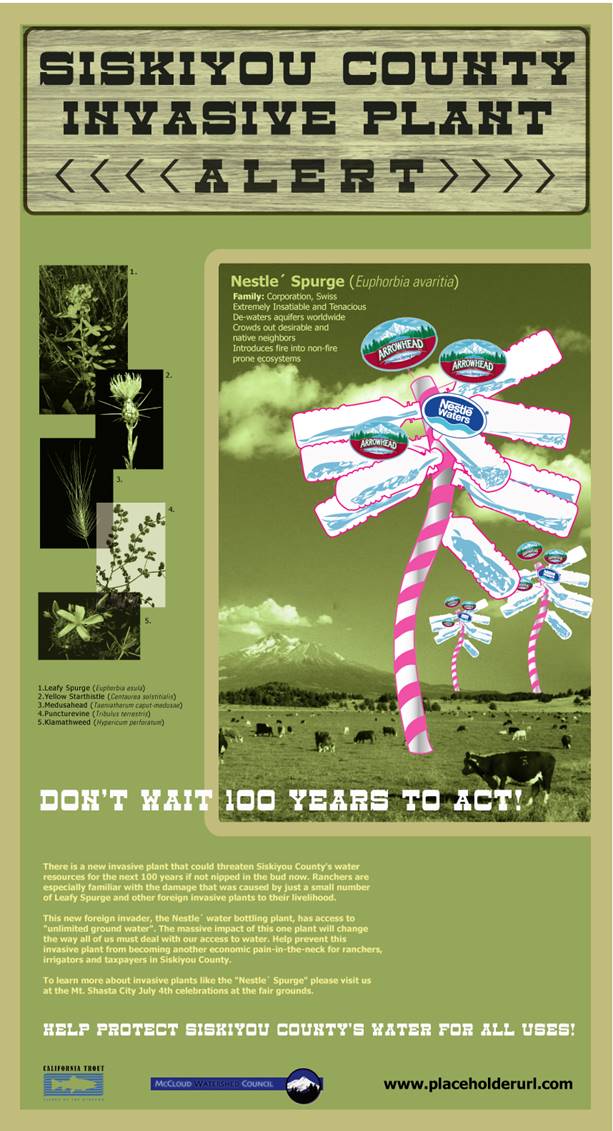

Assessing the Impact
Our top concern was the impact Nestlé’s operations might have on cold spring water flows that feed the McCloud River, and how that in turn might impact the local ecology and economy.
The McCloud River is a blue-ribbon trout stream, home of the famed Shasta rainbow trout and one of California’s most pristine watersheds. Anglers and visitors to the McCloud River represent a vital part of the local economy. Adequate baseline studies didn’t exist at the time, but were necessary to assess potential future impacts of the water bottling operation—something Nestlé stated it was committed to doing. Unfortunately, the original Draft Environmental Impact Report (EIR) released in 2006 lacked the information needed to properly establish a baseline condition and to determine project impacts.
Our first significant victory came when, under intense pressure from our coalition and local citizens, Nestlé withdrew the original Draft EIR, implicitly acknowledging that they could and would do better. Nestlé agreed to scale back the size of the project and to develop baseline information. Our coalition then worked collaboratively with Nestlé and scientists at UC Berkeley and UC Davis to design and implement comprehensive baseline studies on water quality, fish, and streamflow in Squaw Valley Creek.
2009 Mt. Shasta Spring Waters Report
The cold, clean spring waters that issue from Mount Shasta provide ideal habitat for native trout, steelhead and salmon populations in the McCloud, Upper Sacramento and Shasta River watersheds. These cold waters are responsible for the unique life histories of the regions famous fish and are important refugia areas in the face of climate change.
Mount Shasta’s springs also feed municipal water supplies for the cities of Mount Shasta, Weed, Dunsmuir and McCloud, and provide important inflow to Shasta Reservoir, which is vital to our state’s agriculture, hydropower, municipal and industrial water supplies.
Despite their importance, no comprehensive study of Mount Shasta’s unique spring sources existed in the early 2000’s. This lack of baseline information made it difficult to formulate science-based water policy and management decisions—precisely the issues Nestlé’s proposal to bottle McCloud River spring was bringing before the community.
CalTrout brought together a group of scientists to bridge the knowledge gap with this baseline study of Mount Shasta’s springs from 2007-2009. The objectives of the study were to establish a baseline monitoring program at prioritized springs and develop a spring vulnerability rating. We wanted to know at what elevation on the mountain does a certain springs water originate, how long does it take for the water to emerge as a spring, and how vulnerable are the springs to climate variation?
The study included 22 springs on Mount Shasta at high, middle and low elevations in each of the three main watersheds (McCloud, Upper Sac, and Shasta Rivers).
Learn More >>
Summary of the study and its findings: Shasta Spring Waters Booklet
Scientific report: Mt. Shasta Springs 2009 Summary Report
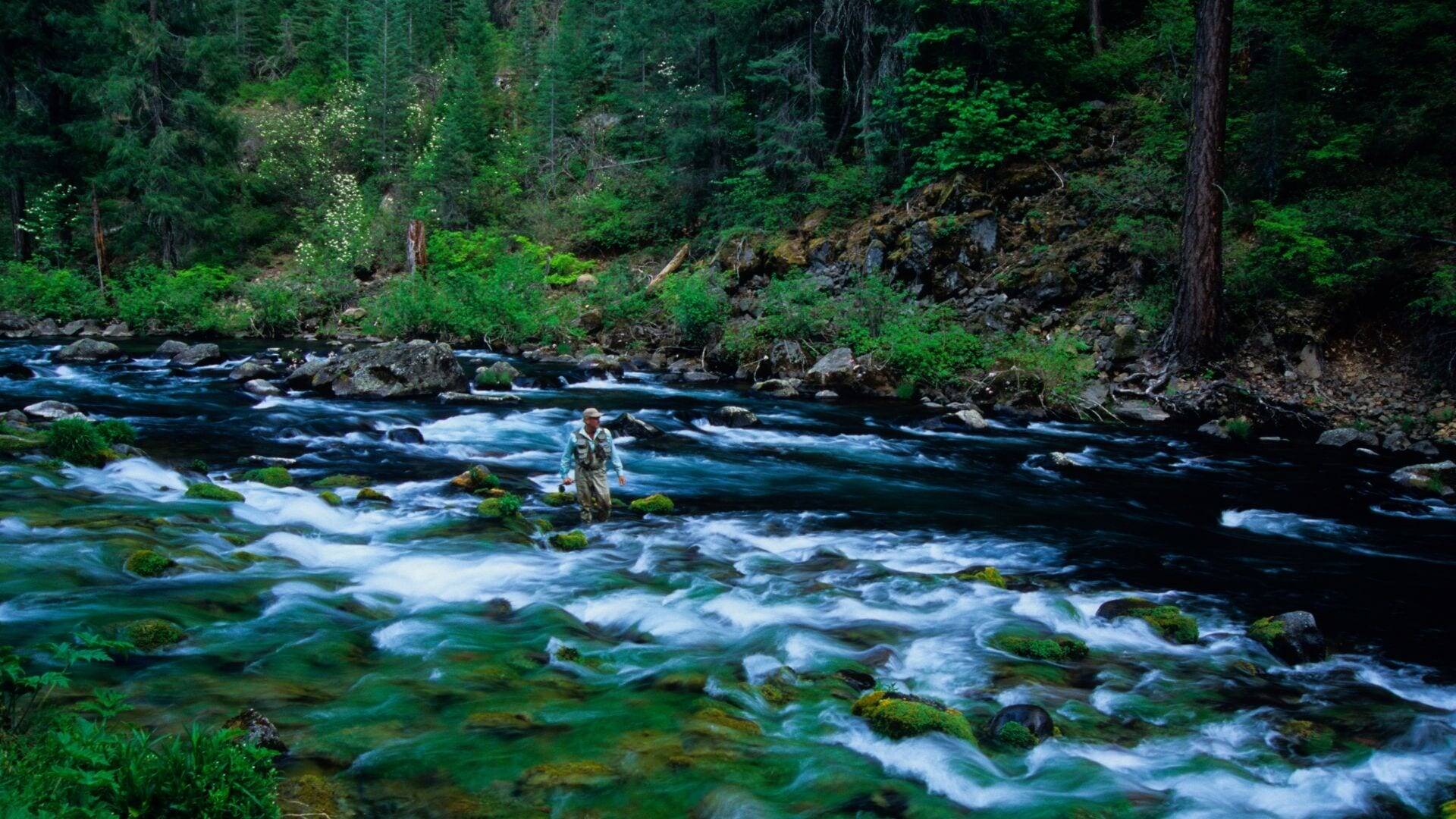
"History has shown that when a large, powerful corporation like Nestle goes into a small, rural community, the corporation usually gets its way.
"However, when Nestlé came into McCloud, California, seeking to exploit its natural spring water, members of the community banded together with pro bono lawyers and determined non-profits to protect local watersheds. CalTrout was a critical partner in rebuffing this threat to the community, its way of life, and the environment."
- Bob Haas, CalTrout member and Chairman Emeritus of Levi Strauss & Co.
Nestle Leaves Town
And then, in the fall of 2009—in the midst of conducting studies and Nestlé scaling back the size of the project—Nestlé abruptly announced it was abandoning the project in McCloud.
Nestlé’s press release stated that a new water bottling facility in Sacramento meant they didn't need to bring the McCloud facility online. Notably, Nestlé also mentioned how the corporation “benefited from our engagement with members of the McCloud community and, in the spirit of continuous improvement, plan to apply those lessons in other situations.”
This was a huge victory for the protection of the McCloud River, the cold water springs that feed it, and the fish who depend on it.
And for the people of McCloud, as well. The mill site—300,000 square feet of industrial space on 278 acres—was purchased from Nestlé by the McCloud Partners, a group of investors with deep ties to McCloud and California. Their mission is to apply the right balance of economic innovation and environmental stewardship to the former McCloud Mill property. Currently, there are numerous business operating out of the old mill site, from sustainable farming and construction to automotive fabrication and engineering.
"The mill is doing great; business has really grown. We have doubled our revenue, with several significant new tenants like PG&E and Mountain Medics. We're working on some really significant deals that will bring big money and a lot of jobs to town."
- Bruce Berlinger, McCloud Millworks COO and Co-Founder
The Nestlé fight was a pivotal moment in the evolution of CalTrout. We learned the power of grassroots organizing, enabled by our community-based office; we learned that leading with science and developing fact-based information earns credibility; we learned that legal representation and knowledge of law and policy are necessary when seeking to defend the public trust; and we learned how a strategic public relations campaign is vital in order to frame the issues correctly.
Most notably, we learned these components must be coordinated and work in tandem when taking on a challenge as big as Nestlé’s threat to steal spring water from the McCloud River. And we'll be ready for the next big challenge when it comes.



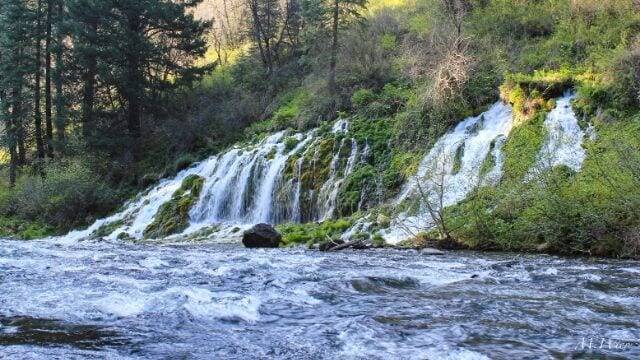
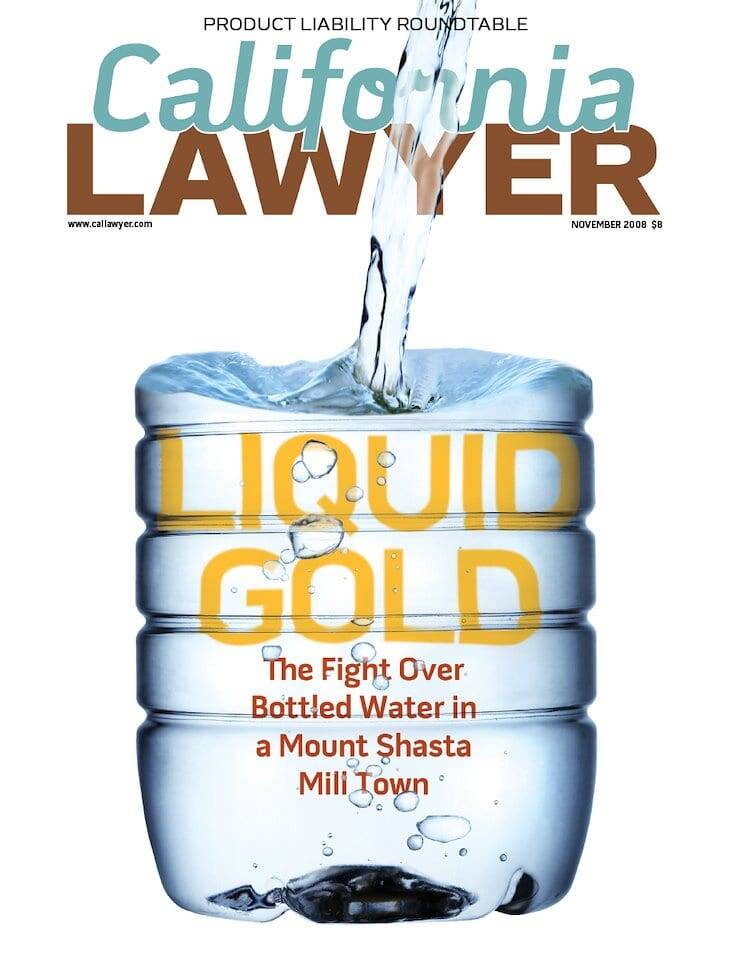
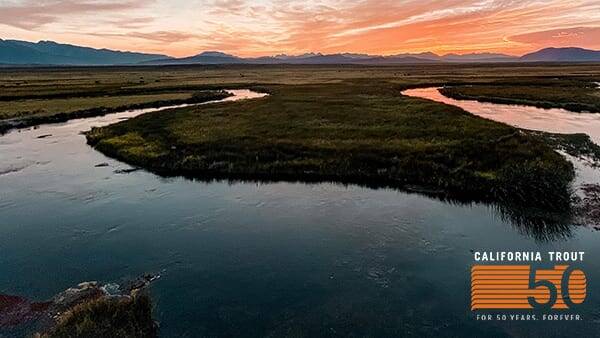

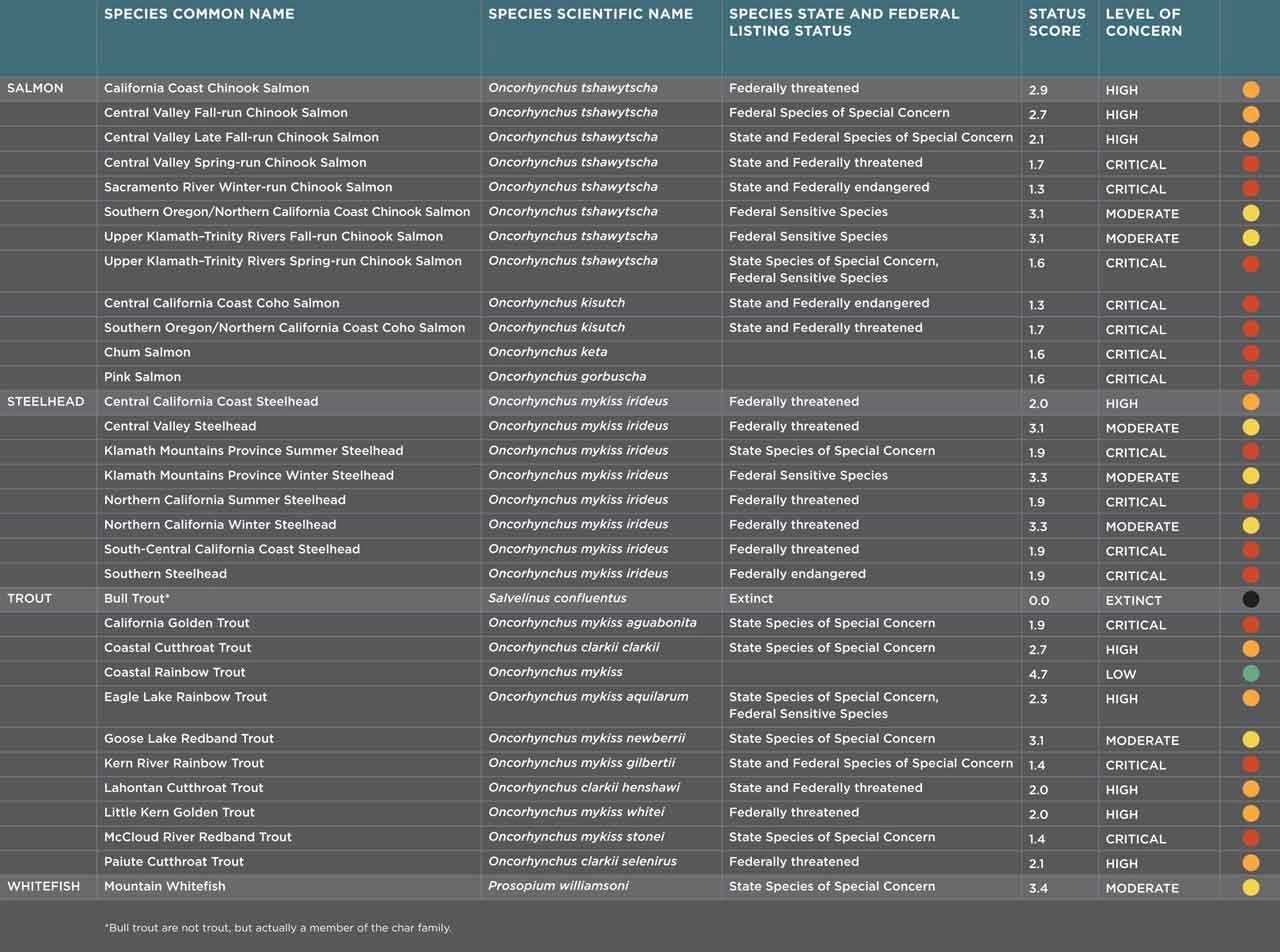




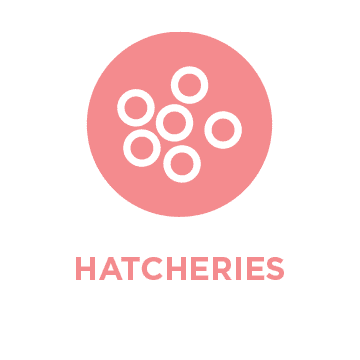




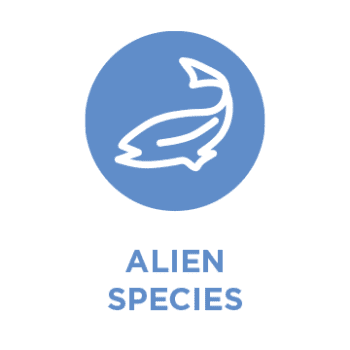


 Dams block access to historical spawning and rearing habitats. Downstream, dams alter the timing, frequency, duration, magnitude, and rate of change of flows decreasing habitat quality and survival.
Dams block access to historical spawning and rearing habitats. Downstream, dams alter the timing, frequency, duration, magnitude, and rate of change of flows decreasing habitat quality and survival.